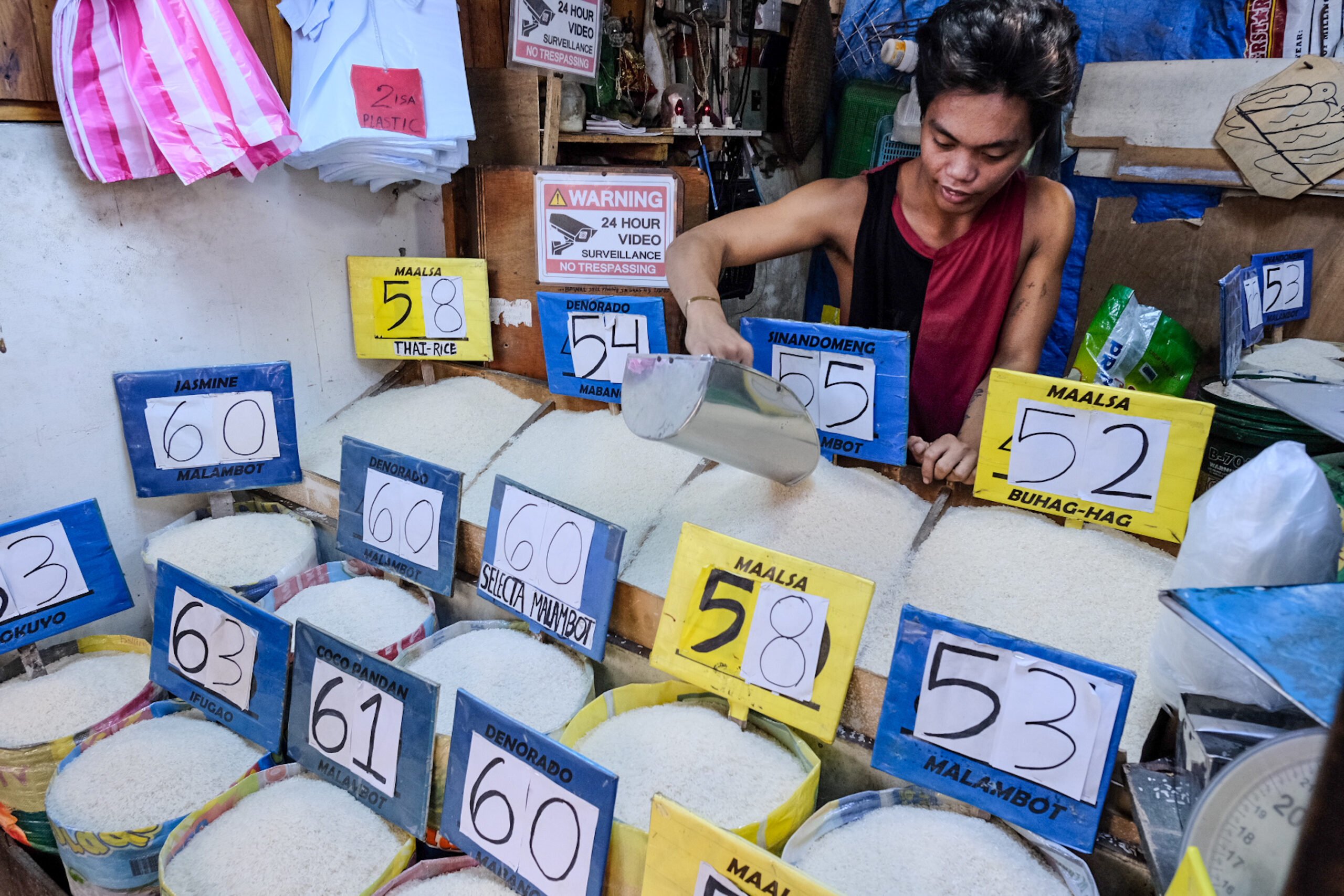




January Economic Update: Growth slows, prices rise
 DOWNLOAD
DOWNLOAD

Inflation Update: Up, up, and away?
 DOWNLOAD
DOWNLOAD

Quarterly Economic Growth Release: Growth takes on a slower pace
 DOWNLOAD
DOWNLOAD


PHL inflation cools in boon for rate cuts

Inflation slowed, as expected, to a seven-month low in August due to a moderate rise in food and a decline in transport costs, making the case for the Philippine central bank to deliver more interest rate cuts next quarter to boost economic growth.
Consumer prices rose by 3.3% from 4.4% in July and 5.3% a year earlier, the Philippine Statistics Authority (PSA) said on Thursday.
The increase was within the Bangko Sentral ng Pilipinas’ (BSP) 3.2-4% forecast for the month and below the 3.7% median estimate of 15 analysts in a BusinessWorld poll last week.
Declining inflation could justify further policy easing, Michael L. Ricafort, chief economist at Rizal Commercial Banking Corp., said in an e-mail.
“It is possible for inflation to sustain its 3% levels for the rest of 2024,” he said. “That could justify further BSP rate cuts that would match any future Federal Reserve rate cuts from 2024 to 2026.”
The Monetary Board cut benchmark interest rates by 25 basis points (bps) to 6.25% at its Aug. 15 meeting, the first cut in almost four years. BSP Governor Eli M. Remolona, Jr. has signaled another 25-bp cut before the year ends.
In a note, Pantheon Macroeconomics said inflation risks “remain skewed to the downside, as the recent cut in rice tariffs has yet to have a meaningful impact on prices.”
But Chinabank Research noted that while rice prices could decline in the coming months, recent bad weather poses supply-side risks that could drive food prices up.
“Base effects will help push down inflation in September, which could help offset any potential upward price pressures from the typhoon and monsoon rains,” it said in a note.
August ended six straight months of acceleration, with inflation returning to the Philippine central bank’s 2-4% target.
Month on month, consumer prices declined by 1.1%. Stripping out seasonality factors, prices decreased by 0.1%.
Core inflation, which excludes volatile prices of food and fuel, slowed to 2.6% from 2.9% in July and 6.1% a year ago. Inflation averaged 3.6% in the first eight months of the year.
At a news briefing, National Statistician Claire Dennis S. Mapa said August inflation was mainly driven by the slower price increases in food and nonalcoholic beverages, which slowed to 3.9% from 6.4% in July.
It accounted for 69.9% of the overall inflation downtrend.
Also contributing to the downtrend was transport, with an annual drop of 0.2%. In August, pump price adjustments stood at a net decrease of PHP 2.70 a liter for gasoline, PHP 2.80 for diesel, and PHP 3.70 for kerosene.
Food inflation slowed to 4.2% from 6.7% in July, mostly due to the slower increases in the prices of rice at 14.7%. This was followed by vegetables, tubers, plantains, cooking bananas and pulses with a year-on-year decline of 4.3%.
The average price of a kilo of regular milled rice fell to P50.66 in August from P50.90 a month earlier, while well-milled rice prices declined to P55.56 from P55.85, PSA data showed.
MONITORING RISKS
The PSA also reported faster annual declines in the indices of fish and other seafood at 3.1%, and sugar, confectionery, and desserts at 3.8%.
Lower inflation rates were also noted in flour, bread, and other bakery products, pasta products, and other cereals at 2.4%; meat and other parts of slaughtered land animals at 4%; and ready-made food and other food products not elsewhere classified at 5.5%.
On the other hand, inflation for housing, water, electricity, gas, and other fuels accelerated to 3.8% in August from 2.3% in July, mainly due to higher electricity prices.
“Our expectation is that it will increase until October,” Mr. Mapa said.
In a statement, Finance Secretary Ralph G. Recto said the government “will not be complacent” with the latest inflation figures. “While we are now seeing the positive results of our measures, we are proactively monitoring potential inflationary risks to address them in a timely and targeted manner.”
The government is prepared to counter the impacts of La Niña on inflation, National Economic and Development Authority Secretary Arsenio M. Balisacan said in a separate statement.
These include improved early warning systems and the use of communication systems to warn about dam openings, as well as measures against the potential spread of livestock diseases, he added.
President Ferdinand R. Marcos, Jr. vowed to put up more state-assisted farm-to-market outlets and speed up the rollout of swine vaccines to temper rising costs. In a statement, he attributed slowing inflation to lower rice tariffs.
Mr. Marcos said putting more stores under the state’s Kadiwa program, which allows farmers to sell directly to consumers, in central and southern Philippines ensures prices would be affordable.
There were 265 regular Kadiwa stores nationwide and 119 Kadiwa pop-up stores that operated for a limited time as of May.
Mr. Marcos said the government would start the controlled rollout of African Swine Fever vaccines to ensure sufficient and affordable pork supply.
The President also said the government was exerting all efforts to ensure stable gasoline prices.
The Philippines was battered this week by heavy rains from Severe Tropical Storm Yagi and the southwest monsoon, with the Agriculture department estimating farm damage at P350.85 million. The agency said production losses hit 14,814 metric tons spanning 8,893 hectares of land. Rice accounted for P333.08 million of the total damage. — – Beatriz Marie D. Cruz, Reporter, with Kyle Aristophere T. Atienza
This article originally appeared on bworldonline.com





 By BusinessWorld
By BusinessWorld

